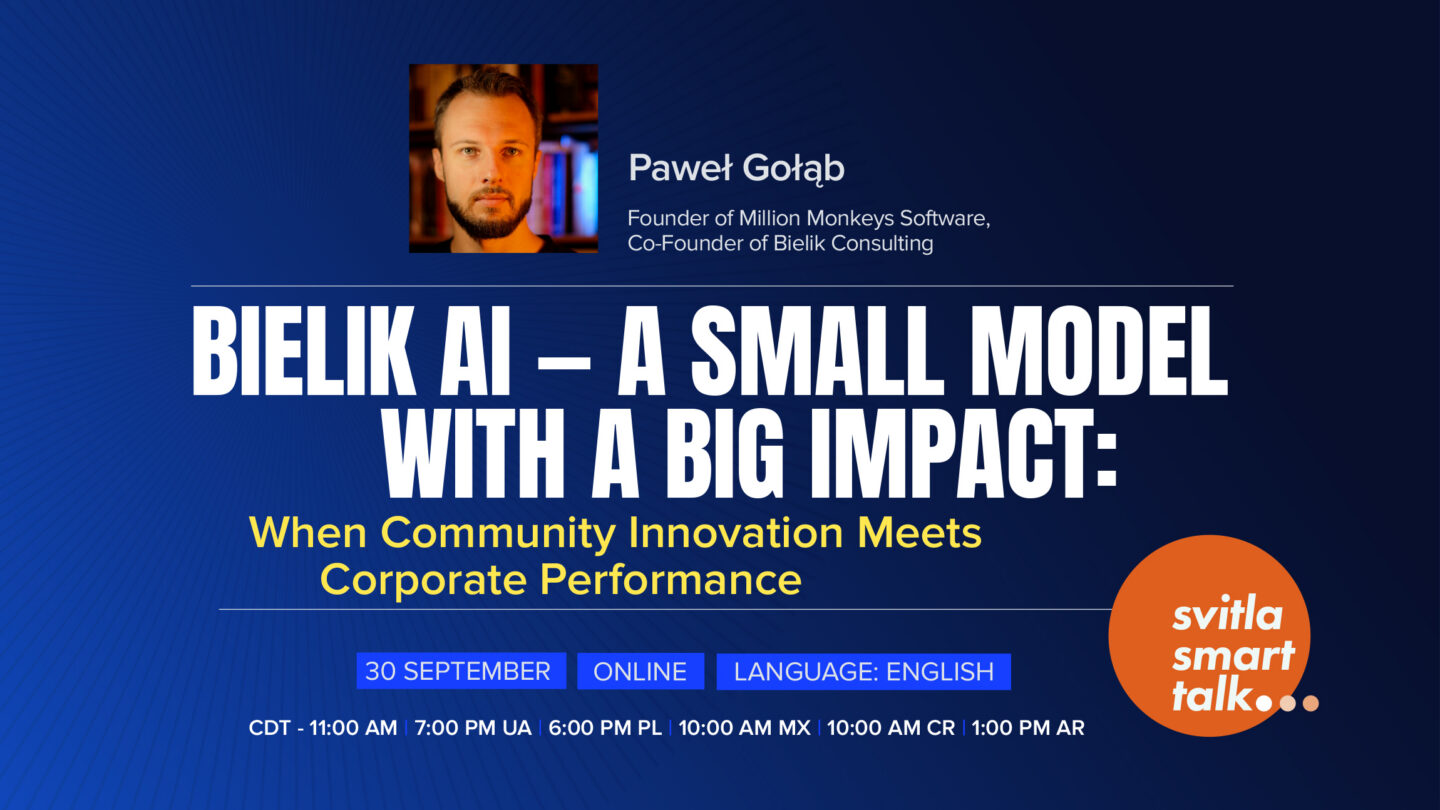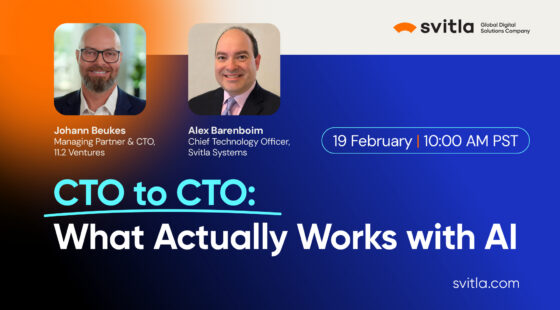Svitla Smart Talk: Bielik AI — a Small Model with a Big Impact

What happens when a small community decides to challenge the AI giants? The Bielik project started as a grassroots effort to build a Polish language model, but it quickly became something more interesting—a case study in how smart engineering can make a small open-source team competitive with tech behemoths. When NVIDIA officially endorsed Bielik and major platforms began integration talks, it became clear that this wasn't just another academic exercise.
We'll explore how a series of interesting design decisions—including a layer duplication technique called depth up-scaling and a custom Polish tokenizer that dramatically reduces processing overhead—combined with rigorous data engineering to produce models that achieve performance levels comparable to systems several times their size. These Bielik models hold their own against much larger competitors, demonstrating that thoughtful architecture choices can be as valuable as raw computational power.
Behind the technical innovations lies a different philosophy about AI development. While tech giants race to build ever-larger models, Bielik demonstrates that careful engineering and domain expertise can achieve similar results with radically fewer resources. The project's success raises questions about the future of AI development: whether efficiency and accessibility might matter more than raw scale, and what happens when communities take control of their own AI infrastructure.
Speaker
Paweł Gołąb - Founder of Million Monkeys Software and co-founder of Bielik Consulting. Has collaborated on a variety of projects, ranging from mobile and web applications to criminal analysis systems. Passionate about projects that merge science with business. Currently focused on graph analytics, its connections to artificial intelligence, and the implementation and promotion of Bielik, the Polish language model. In his spare time, he lectures on computer science at the University of Warsaw.



